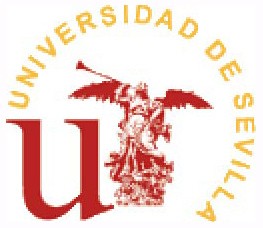

APPLIED NUCLEAR PHYSICS GROUP
University of Seville and Spanish National Accelerator Center


APPLIED NUCLEAR PHYSICS GROUP
University of Seville and Spanish National Accelerator Center
Topics
Related links
News
Dr. Jiménez Ramos has made experiments in the Nuclear Fusion Techniques field
The increase of researches on nuclear fusion at University of Seville has needed safety studies. Fusion reactors will be used as energy source in the future. A safe use of these systems will be necessary to have well protected the surroundimg population and the environment and the users of the devices.
In a recent publication, Dr. Jiménez Ramos has proposed a 4H-SiC detector as a plasma diagnostic system for detection of fusion-born alpha particles (Radiation Physics and Chemistry 17 (2020) 109100).
The behaviour of such detector was experimentally checked by irradiation with 3.5 MeV He ions and a possible degradation was studied: charge collection efficiency and energy resolution. A significant deterioration was observed when ion beam fluences were above 3 x 1011 cm-2.
Then, the potential use of 4H-SiC PNDs for the detection of escaping He ions in future D-T based fusion reactors could be considered as a realistic option. Further experiments on the properties of PNDs at high operating temperatures will be developed.
Ion beam analysis in the Spanish National Accelerator Center
Ion beam analysis in the Spanish National Accelerator Center
Dr. Elena Ceballos has participated in a sampling campaign financied by NASA in the Atlantic Ocean
Dr. Elena Ceballos found her PhD degree in the University of Seville in 2019. She continues research on environment in Woods Hole Oceanographic Institution (WHOI), in the USA. In this research institution, Dr. Ceballos studies the role of oceans in the carbon cycle.
Once Dr. Ceballos will finish the research in WHOI, she will continue her researchs with a "Marie Sklodoxska Curie Actions Fellowship" (MSCA).
Dr. Ceballos has participated in some scientific campaigns related to her research mainstreams: six weeks in the Antartide in 2013 in RRS James Clark Ross (British Antartic Survey) and three months in the Northern Atlantic in 2021. This second campaign was financied by NASA, where three research ships and 150 specialists were applied. Dr Ceballos was a member of BO Sarmiento de Gamboa crew (CSIC, Spain).
Additionally, Dr. Ceballos has participated in different mass media interviews to explain her sicientific activities and the objectives of research she is developing. Thus, public could be informed and a ecological feeling will increase in our society.
Dr. Ceballos in a sampling campaign.
Dr. Ceballos in a sampling campaign.
Dr. Ceballos in a sampling campaign.